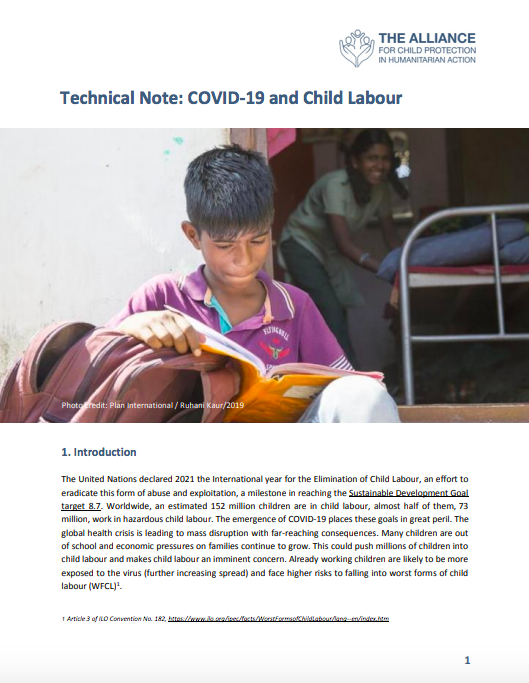The United Nations declared 2021 the International year for the Elimination of Child Labour, an effort to eradicate this form of abuse and exploitation, a milestone in reaching the Sustainable Development Goal target 8.7. Worldwide, an estimated 152 million children are in child labour, almost half of them, 73 million, work in hazardous child labour. The emergence of COVID-19 places these goals in great peril. The global health crisis is leading to mass disruption with far-reaching consequences. Many children are out of school and economic pressures on families continue to grow. This could push millions of children into child labour and makes child labour an imminent concern. Already working children are likely to be more exposed to the virus (further increasing spread) and face higher risks to falling into worst forms of child labour (WFCL). This technical note offers guidance and information to practitioners and policy-makers on child labour issues during and after COVID-19 and what actions can be taken. Section 2 presents the potential risks COVID-19 can pose to children at risk of child labour and children engaged in child labour. Section 3 presents programmatic and advocacy actions in line with the 2019 Minimum Standards for Child Protection in Humanitarian Action (CPMS) and the Child Labour in Emergencies Toolkit.

